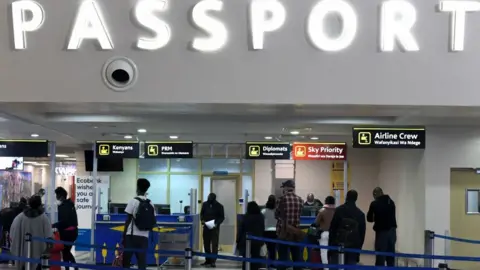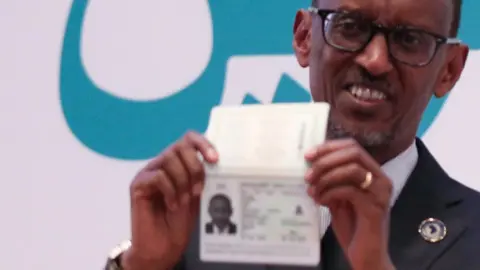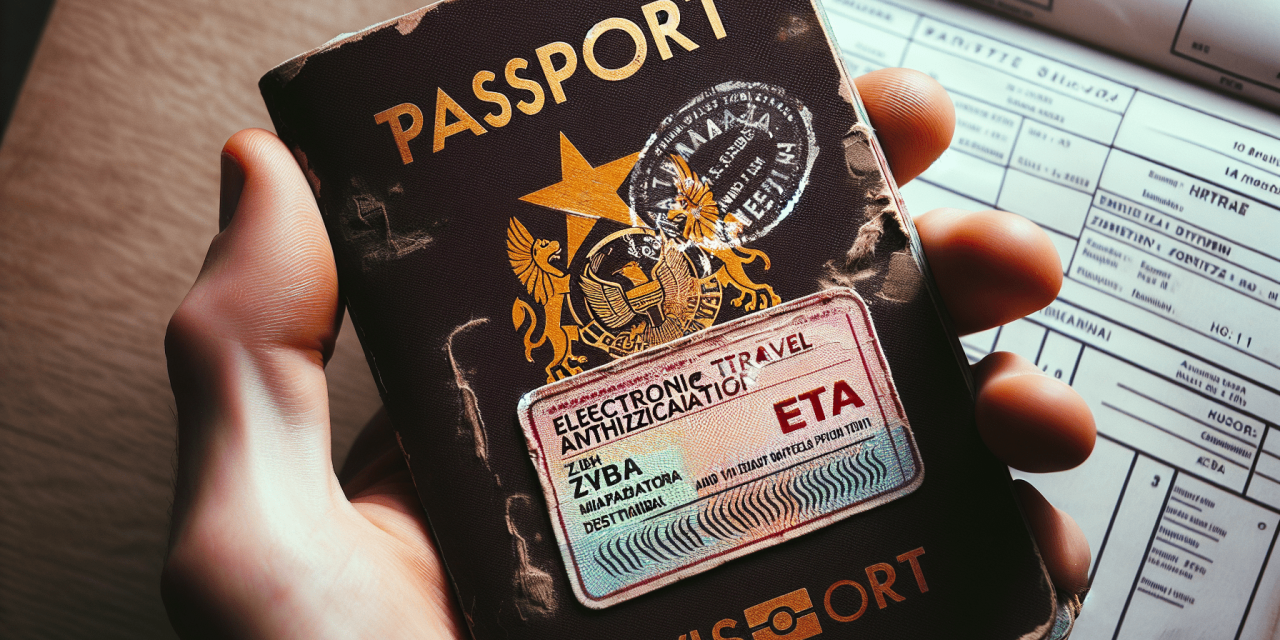Kenya’s President William Ruto’s decision to make the country visa-free for African visitors has proven to be more complicated than anticipated. While the announcement was initially celebrated, many travelers have been caught off guard by the new requirements, which include additional costs and paperwork. For example, nationals from countries like Zimbabwe, who previously enjoyed visa-free entry, now need to obtain an Electronic Travel Authorization (ETA) every time they enter Kenya, costing $30 and taking up to three days to process. This unexpected change has caused inconvenience and frustration for travelers like Adio, who had to go through a frantic application process and ended up missing his flight. While the security reasons behind the new system are understandable, Kenya may face potential negative impacts on tourism and trade due to the increased demands on African travelers.
The Announcement of Kenya’s Visa-Free Entry Policy
Kenya made headlines last year when President William Ruto announced that the country would be implementing a visa-free entry policy for African visitors. This decision was met with celebration and surprise from many, as they were not expecting the new requirements that came along with it. The new policy introduced fresh costs and paperwork for some travelers, causing confusion and inconvenience. One Zimbabwean citizen, Adio, had a particularly unexpected experience when he arrived at Bremen airport for his flight to Kenya. He was asked to show a document granting him permission to enter the country, which he did not anticipate. This article will delve into the details of Kenya’s visa-free entry policy, its impact on tourism and the economy, and the challenges and calls for improvement in the system.
Understanding the New Visa-Free Policy
There have been some misconceptions about Kenya’s visa-free policy, leading to confusion among travelers. The introduction of the Electronic Travel Authorisation (ETA) system has added an extra step for visitors entering the country. The ETA is required for single entry and is valid for 90 days, with a cost of $30 and a processing time of up to three days. This requirement applies to all visitors, except citizens of countries in the East African Community (EAC). It is important to note that the ETA is essentially a “visa under another name,” as explained by Kenyan immigration lawyer Davis Nyagah. Previously, travelers could obtain a multiple-entry visa for $50, valid for several years, but now they must pay $30 for each entry.
When compared to other visa-free countries in Africa, such as Rwanda, Kenya’s system seems more burdensome. Rwanda experienced a 14% increase in African visitors after removing visas in 2018 and now allows visitors to enter without any prior authorization or payment. The security element of the new ETA system is a factor behind Kenya’s different approach. The Kenyan government stresses the need for vetting travelers to ensure safety and combat terrorism, especially in light of past attacks by al-Shabab militants. While the ETA system may have its challenges, the government projects that visitor numbers will ultimately increase due to the ease of use.

The Security Element of the ETA System
The implementation of the ETA system in Kenya serves the purpose of vetting travelers to enhance security. Terrorism is a global threat, and Kenya wants to ensure that everyone entering the country poses no risk. The concerns about terrorism and safety are valid, given the history of al-Shabab attacks in Kenya. The government believes that the ETA system will contribute to overall security efforts. Although the introduction of the ETA may have initially caused confusion and inconvenience for travelers, the long-term impact on tourism is expected to be positive, as the new system facilitates ease of travel.
Debating the Impact on Tourism and Economy
President Ruto envisioned a visa-free entry policy in Kenya as a means to promote frictionless movement and trade within Africa. The ease of travel is crucial in attracting tourists and businesses to the country. However, some experts express concerns about the potential negative impact on the Kenyan economy. The introduction of the ETA system and the additional costs and paperwork for travelers might discourage visitors, especially in the short to medium term. Anthony Mveyange, an economist and public policy expert based in Kenya, suggests that this could hurt the Kenyan economy in different ways. Nevertheless, the government spokesperson, Isaac Maigua Mwaura, acknowledges that there have been teething problems with the ETA system but asserts that they will be resolved with time.

Challenges and Teething Problems with the ETA System
The Kenyan government admits that there were initial difficulties with the ETA system and acknowledges the need for improvement. Processing and capacity issues have emerged, as the system currently handles around 5,000 requests per day. The government plans to review visa-free arrangements with certain countries, particularly those that had previously enjoyed visa-free entry, such as Zimbabwe. These challenges demonstrate the barriers to freedom of movement within Africa that still exist. However, other countries have taken steps towards easier travel, such as introducing bilateral visa-waiver deals.
Calls for Improvement and Progress
Many individuals, like Adio, desire a smoother travel experience and believe that Africa can learn from other regions, such as the Schengen Area in Europe. Adio’s experience in Europe highlights the seamless movement between countries, contrasting with the often lengthy and complex process in Africa. The need for further reforms is clear, with the vision of a single African passport and the economic implications of easing travel restrictions within the African Continental Free Trade Area. Several countries have already introduced visa-waiver deals, contributing to progress in easing travel restrictions. However, there is still a long way to go, as many countries continue to require visas for citizens of multiple nations.

The African Continental Free Trade Area and the Vision of a Single African Passport
Easing travel restrictions within Africa has economic implications that tie into the vision of the African Continental Free Trade Area. This initiative aims to create a single market in Africa, promoting trade and economic growth. To enable the free flow of goods and services, it is crucial to address travel restrictions. The creation of a single African passport has been discussed, although its implementation is still limited. While progress is being made in terms of visa-waiver deals and the liberalization of travel policies, there are still stricter visa requirements in certain African countries. Harmonization and improvement are necessary to achieve easier freedom of movement within Africa.
The Road to Easier Freedom of Movement in Africa
The road to easier freedom of movement in Africa involves bilateral visa-waiver deals between countries and the introduction of more liberal visa policies. Examples of countries with such policies include Ghana and South Africa, Botswana and Zimbabwe, and the Democratic Republic of Congo and Uganda. While progress has been made, many countries still require visas for citizens of numerous nations. Stricter visa requirements exist in certain countries, posing a barrier to seamless travel. The need for improvement and harmonization across the continent remains evident.
Conclusion
Kenya’s announcement of a visa-free entry policy was met with both celebration and surprise. While the new requirements introduced fresh costs and paperwork for some travelers, the government believes that these measures contribute to enhanced security. However, there are concerns about the impact on tourism and the economy, with experts highlighting potential short to medium-term effects. The challenges and teething problems with the ETA system have been acknowledged by the government, and steps are being taken to address them. Calls for further reforms and progress towards frictionless movement in Africa persist, as the vision of a single African passport and the economic implications of easing travel restrictions continue to gain traction. Balancing security and ease of travel is vital, and the need for improvement and harmonization across the continent remains a priority.
Sources and Additional Information
- Quotes from Kenyan immigration lawyer and government spokesperson
- Comparisons with visa-free policies of other countries
- Information on African travel statistics and visa requirements
- Background on President Ruto’s original remarks and vision












